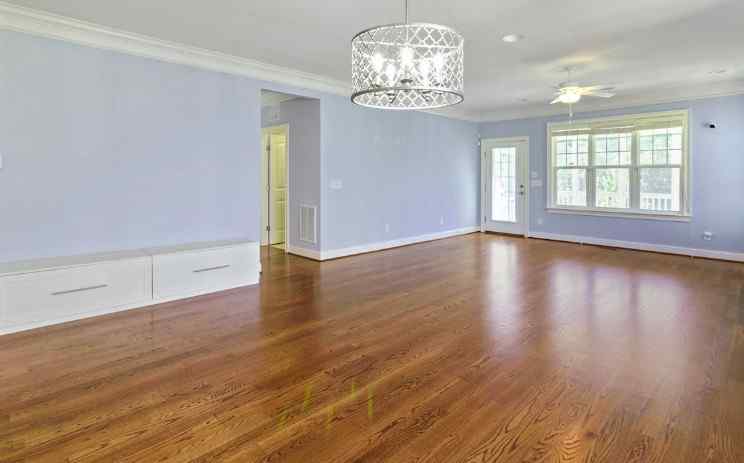Table of Contents
Quality Service Guarantee Or Painting Free

Get a rental agreement with doorstep delivery

Find the BEST deals and get unbelievable DISCOUNTS directly from builders!

5-Star rated painters, premium paints and services at the BEST PRICES!
Loved what you read? Share it with others!

Floor Space Index (FSI) in Bangalore: Everything You Need to Know
Table of Contents
In the bustling market of Bangalore, where every square foot counts, Floor Space Index (FSI) stands as the arbiter of a property's true potential and value.
Wondering how it could be the game-changer in your next real estate move? This blog is your compass in this intricate landscape. Delve into the depths of FSI in Bangalore, from its definition to the nuances of calculation, and invaluable insights that will always empower your property decisions.
Whether you're eyeing that dream property, aiming to sell strategically, or envisioning a groundbreaking development, FSI is the key to taking your property ventures to reach new heights.
Quality Service Guarantee Or Painting Free

Get a rental agreement with doorstep delivery

Find the BEST deals and get unbelievable DISCOUNTS directly from builders!

5-Star rated painters, premium paints and services at the BEST PRICES!
What is FSI and Why is It Important in Bangalore?

FSI or Floor Space Index, also known as Floor Area Ratio (FAR), is a crucial parameter used to measure the total built-up area of a building against the size of the plot it occupies. The FSI indicates the amount of floor space that can be constructed on a given plot. In Bangalore, the FSI is a significant factor that affects the real estate market and property prices.
Definition of FSI and its significance in real estate
FSI is the ratio of the total floor area of a building to the area of the plot on which the building stands. It takes into account all floors, including the basement and mezzanine, and excludes only the areas dedicated to utilities like staircases, elevators, and ducts. FSI determines the maximum permissible built-up area on a particular plot, and it varies depending on the zoning of the area and the type of building being constructed.
The FSI plays a vital role in the real estate industry as it defines the development potential of a particular land parcel. The higher the FSI, the more built-up area that can be constructed, and the higher the property’s potential value. Therefore, developers and investors are always keen on knowing the FSI of a land parcel before investing.
Importance of FSI in Bangalore’s real estate market
In Bangalore, the FSI is one of the most crucial parameters that determine the value of a property. The city’s property market is highly competitive, and FSI can be a deciding factor in the profitability of a project. The FSI varies across different zones in the city, and it is determined by the Bangalore Building Bye-Laws and the BBMP (Bruhat Bengaluru Mahanagara Palike) regulations.
How FSI affect the value of properties in Bangalore?
In Bangalore, the FSI determines the maximum permissible built-up area on a plot, and it affects the property’s market value. A higher FSI means more built-up area and hence higher profitability for developers. However, a higher FSI may also lead to congestion, increased traffic, and a strain on the existing infrastructure, leading to a negative impact on the quality of life in the area.
Primary and Secondary Factors that Influence FSI in Bangalore
The FSI in Bangalore is influenced by several primary and secondary factors. The primary factors include the location of the plot, the land use category, the width of the road, the height of the building, and the availability of infrastructure like water, power, and sewerage. The secondary factors include the current market demand, the development potential of the area, and the existing zoning regulations.
FSI is an essential parameter that determines the development potential and market value of a property in Bangalore. Developers and investors need to consider the FSI regulations and various other factors that influence it before investing in a particular property. By doing so, they can maximize their profits while contributing to the overall growth and development of the city.
Understanding FSI Calculation in Bangalore

FSI or Floor Space Index is a crucial parameter in the real estate industry, and it is used to determine the maximum permissible built-up area on a particular plot of land. In Bangalore, the FSI is determined by various factors, and it varies across different zones in the city.
How to calculate FSI for Residential and Commercial Properties in Bangalore?
FSI is calculated by dividing the total floor area of a building by the plot area on which the building stands. In Bangalore, the FSI is regulated by the BBMP (Bruhat Bengaluru Mahanagara Palike) and the Bangalore Building Bye-Laws. The FSI for residential and commercial properties is calculated differently, and it also varies based on the zone in which the property is located.
For residential properties, the FSI is calculated by dividing the total built-up area by the plot area. In Bangalore, the FSI for residential properties ranges from 1.5 to 2.75, depending on the zone. For commercial properties, the FSI is calculated by dividing the total built-up area by the plot area, and it ranges from 2.5 to 4.0 in Bangalore, depending on the zone.
Factors that affect FSI Calculation in Bangalore
The FSI calculation in Bangalore is influenced by various factors, including the location of the plot, the type of property being constructed, the zoning regulations, and the availability of infrastructure like water, power, and sewerage. The width of the road, the height of the building, and the setbacks also impact the FSI calculation.
How to maximize FSI for a given plot size in Bangalore?
To maximize FSI for a given plot size in Bangalore, developers and investors can adopt various strategies. They can construct taller buildings or utilize the basement and mezzanine levels to increase the total built-up area. They can also optimize the floor plan and reduce the area dedicated to utilities like staircases, elevators, and ducts.
It is essential to note that while maximizing the FSI can increase profitability, it can also lead to congestion, increased traffic, and a strain on the existing infrastructure, leading to a negative impact on the quality of life in the area.
The impact of FAR (Floor Area Ratio) on FSI calculation in Bangalore
The FSI rules and regulations in Bangalore have a significant impact on the real estate industry in the city. The lower FSI for residential properties has led to a shortage of affordable housing in the city. This, coupled with the rapid urbanization and population growth, has led to a spurt in illegal constructions and encroachments.
On the other hand, the higher FSI calculation in Bangalore for commercial properties has led to the development of high-rise buildings and office spaces, which have contributed to the growth of the IT and services sector in the city.
FSI Rules and Regulations in Bangalore

FSI or Floor Space Index is a critical parameter in the real estate industry, and its rules and regulations play a significant role in shaping the real estate market in Bangalore. The FSI rules and regulations in Bangalore are governed by the BBMP (Bruhat Bengaluru Mahanagara Palike) and the Bangalore Building Bye-Laws.
Overview of the FSI rules and regulations in Bangalore
The FSI rules and regulations in Bangalore vary based on the zone in which the property is located. In residential zones, the FSI ranges from 1.5 to 2.75, while in commercial zones, it ranges from 2.5 to 4.0. The FSI for industrial properties is 1.0, while for public and semi-public buildings, it is 2.0.
The FSI rules and regulations in Bangalore also prescribe the setbacks, height restrictions, and parking requirements for buildings. The setbacks vary based on the width of the road, while the height restrictions depend on the FAR (Floor Area Ratio) allowed in the zone.
Comparison of FSI Rules and Regulations in Bangalore with Other Indian Cities
The FSI rules and regulations in Bangalore are comparable to those in other Indian cities like Mumbai, Delhi, and Chennai. However, the FSI for residential properties in Bangalore is relatively lower than that in Mumbai and Delhi, where it can go up to 5.0 in some areas.
The impact of FSI rules and regulations on Bangalore's real estate industry
The FSI rules and regulations in Bangalore have a significant impact on the real estate industry in the city. The lower FSI for residential properties has led to a shortage of affordable housing in the city. This, coupled with the rapid urbanization and population growth, has led to a spurt in illegal constructions and encroachments.
On the other hand, the higher FSI calculation in Bangalore for commercial properties has led to the development of high-rise buildings and office spaces, which have contributed to the growth of the IT and services sector in the city.
Compliance with FSI rules and regulations in Bangalore: Best practices
Compliance with the FSI rules and regulations in Bangalore is essential to ensure sustainable development and avoid legal and financial liabilities. Best practices for compliance include conducting a thorough site analysis before starting construction, obtaining all necessary permits and approvals, engaging a professional architect or designer to optimize the floor plan, and ensuring adequate parking and setback requirements.
Bangalore FSI rules are critical in shaping the real estate market in the city. A thorough understanding of the regulations, compliance with best practices, and sustainable development practices are essential to ensure long-term growth and profitability in the real estate industry.
BBMP Building bye-laws and FSI in Bangalore

The BBMP (Bruhat Bengaluru Mahanagara Palike) building bye-laws play a crucial role in regulating the construction and development of buildings in Bangalore. These laws govern various aspects of building construction, including the maximum height of buildings, setbacks, parking requirements, and FSI (Floor Space Index).
Overview of BBMP building bye-laws in Bangalore
The BBMP house construction rules in Bangalore are comprehensive and cover a wide range of construction-related aspects. The bye-laws specify the minimum size of the plot required for construction, the number of floors allowed, the distance between buildings, and the maximum height of buildings.
The bye-laws also prescribe the setbacks required for buildings based on the width of the road and the height of the building. Additionally, they specify the parking requirements for buildings based on their use.
Relationship between BBMP building bye-laws and FSI in Bangalore
The BBMP building bye-laws and FSI regulations are closely linked in Bangalore. The FSI is calculated based on the maximum permissible built-up area allowed on a given plot size, as per the BBMP building bye-laws. Therefore, compliance with the building bye-laws is crucial for calculating and maximizing the FSI for a given plot.
Compliance with BBMP building bye-laws and FSI regulations in Bangalore
Compliance with BBMP building bye-laws and FSI regulations is essential for ensuring sustainable development and avoiding legal and financial liabilities. Best practices for compliance include engaging a professional architect or designer to optimize the floor plan and ensure adequate setbacks and parking requirements. Additionally, obtaining all necessary permits and approvals from the BBMP is crucial for compliance with the building bye-laws and FSI regulations.
The impact of BBMP building bye-laws on real estate development in Bangalore
The BBMP building bye-laws have had a significant impact on real estate development in Bangalore. They have helped regulate the construction and development of buildings in the city, ensuring sustainable growth and development. Compliance with the building bye-laws has also led to the development of high-quality buildings and infrastructure in the city, which has attracted investments and contributed to the growth of the real estate industry in Bangalore.
BBMP building bye-laws and FSI regulations play a crucial role in regulating the construction and development of buildings in Bangalore. Compliance with these regulations is essential for ensuring sustainable development and avoiding legal and financial liabilities. Understanding the regulations, engaging professional services, and obtaining all necessary permits and approvals are critical for compliance with these regulations.
FSI Calculation for a 40x30 Sqft Plot in Bangalore

FSI (Floor Space Index) calculation for a 40x30 sqft plot in Bangalore is a critical aspect of building construction and development. Understanding how to calculate FSI, its limitations for a given plot size, and best practices for maximizing FSI can significantly impact the success of a building project. In this section, we will explore FSI calculation for a 40x30 sqft plot in Bangalore and discuss best practices for optimizing FSI.
How to calculate FSI for a 40x30 sqft plot in Bangalore
To calculate FSI for a 40x30 sqft plot in Bangalore, we need to consider the plot's area, setbacks, and other parameters specified by the BBMP building bye-laws. Let's assume that the plot is a rectangular plot with a road on the shorter side. Here are the steps for FSI calculation:
- Determine the plot area: 40x30 sqft = 1200 sqft
- Calculate the setbacks required as per BBMP building bye-laws
- Subtract the setbacks from the plot area to get the net plot area
- Determine the FSI as per BBMP regulations
The FSI for a given plot is calculated by dividing the maximum built-up area permissible on the plot by the net plot area. The FSI for a 40x30 sqft plot in Bangalore varies based on the plot's location, road width, and other factors, as per the BBMP regulations.
Understanding the limitations of FSI for a given plot size in Bangalore
Floor area ratio in Bangalore can have a significant impact on property values in Bangalore. Higher FSI values lead to more construction, which can increase the supply of available housing units in the market. When the supply of available housing units increases, it can lead to a decrease in property values.
Best practices for maximizing FSI for a 40x30 sqft plot in Bangalore
To maximize FSI for a 40x30 sqft plot in Bangalore, it is essential to understand the BBMP building bye-laws and engage professional services to optimize the floor plan. Best practices for maximizing FSI include:
- Using innovative design solutions to optimize space utilization
- Proper planning of the building's orientation and location on the plot
- Engaging a professional architect or designer to ensure compliance with the building bye-laws and regulations
- Obtaining all necessary permits and approvals from the BBMP
FSI calculation for a 40x30 sqft plot in Bangalore is critical for successful building construction and development. Understanding FSI calculation, its limitations, and best practices for optimizing FSI can significantly impact the success of a building project. Engaging professional services and complying with BBMP building bye-laws and FSI regulations are essential for achieving FSI optimization and ensuring sustainable development.
Impact of FSI on Property Prices in Bangalore

In Bangalore, the Floor Space Index (FSI) plays a crucial role in determining the value of properties. It is a measure of the total area of a building that can be constructed on a given plot of land. Higher FSI values indicate that more space can be utilized for construction, which can lead to increased property prices. In this article, we will explore the relationship between FSI and property prices in Bangalore and how FSI affects property buying decisions.
Relationship between FSI and Property Prices in Bangalore:
In Bangalore, there is a direct relationship between FSI and property prices. The higher the FSI value, the more space can be utilized for construction, which can increase the value of the property. Developers and builders are willing to pay a premium for plots with higher FSI values as they can construct more units on the same plot of land, thus increasing their profits.
Understanding the Impact of FSI on Property Values in Bangalore:
FSI values can have a significant impact on property values in Bangalore. Higher FSI values lead to more construction, which can increase the supply of available housing units in the market. When the supply of available housing units increases, it can lead to a decrease in property values as the market becomes more competitive.
On the other hand, lower FSI values can also have an impact on property values. Lower FSI values mean that less construction is possible, which can limit the supply of available housing units. This can lead to an increase in property values as the market becomes more competitive due to limited supply.
How FSI Affects Property Buying Decisions in Bangalore?
FSI values can also have an impact on property buying decisions in Bangalore. Buyers who are looking for larger properties may be willing to pay a premium for plots with higher FSI values. Similarly, buyers who are looking for smaller properties may prefer plots with lower FSI values as they may be more affordable.
In addition, FSI values can also impact the amenities and facilities available in the surrounding area. Higher FSI values can lead to more commercial and retail spaces, which can provide more amenities and facilities for residents. This can make properties with higher FSI values more attractive to buyers.
FSI values have a significant impact on property prices in Bangalore. Higher FSI values increases the attractiveness of individual properties thereby increasing the property value, while lower FSI values can lead to decreased property values. Additionally, FSI values can also impact property buying decisions as buyers may prefer plots with higher or lower FSI values based on their specific needs and preferences.Mastering the nuances of FSI in Bangalore is pivotal for anyone navigating the real estate landscape. But handling FSI complexities like regulations and calculations independently might lead to unforeseen challenges and potential pitfalls.
At NoBroker, our legal expertise in things such as FSI calculations and other such real estate intricacies sets us apart. Trust NoBroker to guide you seamlessly through the process, ensuring your property investment is both sound and lucrative.
Frequently Asked Questions
Ans. FSI stands for Floor Space Index, which is the ratio of the total built-up area of a building to the total area of the plot on which it is built. In Bangalore, FSI is calculated by dividing the total built-up area of a building by the total area of the plot, including setbacks and other open spaces.
Ans. In Bangalore, the maximum FSI allowed for residential properties is 2.25, while for commercial properties, it is 3. In some cases, the FSI may be increased based on certain factors such as the width of the road, the plot size, and the type of development.
Ans. FSI can have a significant impact on property prices in Bangalore. Properties with higher FSI values are generally more valuable as they allow for greater development potential and offer more floor space. Additionally, FSI can influence the supply and demand dynamics of the real estate market, with higher FSI values leading to more supply and potentially lower prices.
Ans. Several factors can influence FSI calculation in Bangalore, including plot size, location, road width, setbacks, and building height restrictions. The local zoning regulations and building bye-laws also play a significant role in determining the maximum FSI allowed for a property.
Ans. You can try optimizing the building design to maximize floor space, minimizing setbacks, and incorporating green building features. Additionally, working with a qualified architect can help ensure that your property complies with local regulations while maximizing its development potential.
Ans. The number of floors in Bangalore is determined by factors like city population, plot location, intended construction type (residential, apartment, or business), road width, and essential service availability (power, water, sewer systems).
Recommended Reading

Stamp Duty and Registration Charges in Bangalore in 2025
January 23, 2025
120497+ views

How to Get a Stay Order in India: Step-by-Step Legal Process in 2025
May 31, 2025
92534+ views

FSI in Mumbai 2025: Calculate FSI in Mumbai Municipal Corporation
January 31, 2025
90549+ views

BBMP e-Aasthi: Search Property Details, Download Certificates, and Check Status Online
April 10, 2025
85593+ views

What are the current Stamp Duty and Property Registration Charges in Karnataka
January 23, 2025
77937+ views
Loved what you read? Share it with others!
Most Viewed Articles

Franking Charges Explained: Meaning and Benefits
January 31, 2025
1115349+ views

Society Maintenance Charges : Meaning, Cost, Types and Calculation
January 31, 2025
193205+ views

BBMP E-Khata Registration process for property owners in Bangalore, Karnataka in 2025
March 19, 2025
145603+ views

Daughter's Right in Fathers' Property - the Law is Finally Equal for both Genders?
June 1, 2025
132632+ views

Rectification Deed Format and Process in India 2025
June 1, 2025
127897+ views
Recent blogs in
How To Register a Rent Agreement Online In Gujarat: Process, Documents and Fees in 2026
January 19, 2026 by Ananth
What is Registered Lease Agreement: Meaning, Legal Validity, Benefits and Online Registration
January 19, 2026 by Krishnanunni H M
What Is a Room Rental Agreement: Meaning, Purpose and Importance in 2026
January 12, 2026 by Kruthi








 Full RM + FRM support
Full RM + FRM support
Join the conversation!